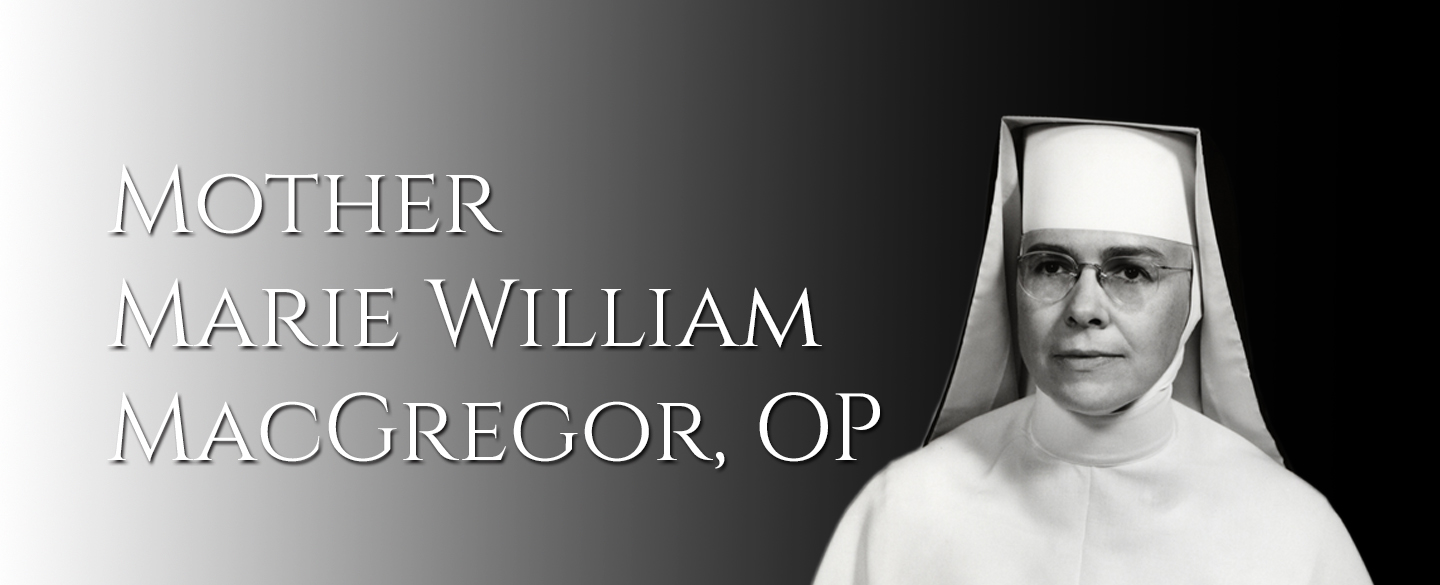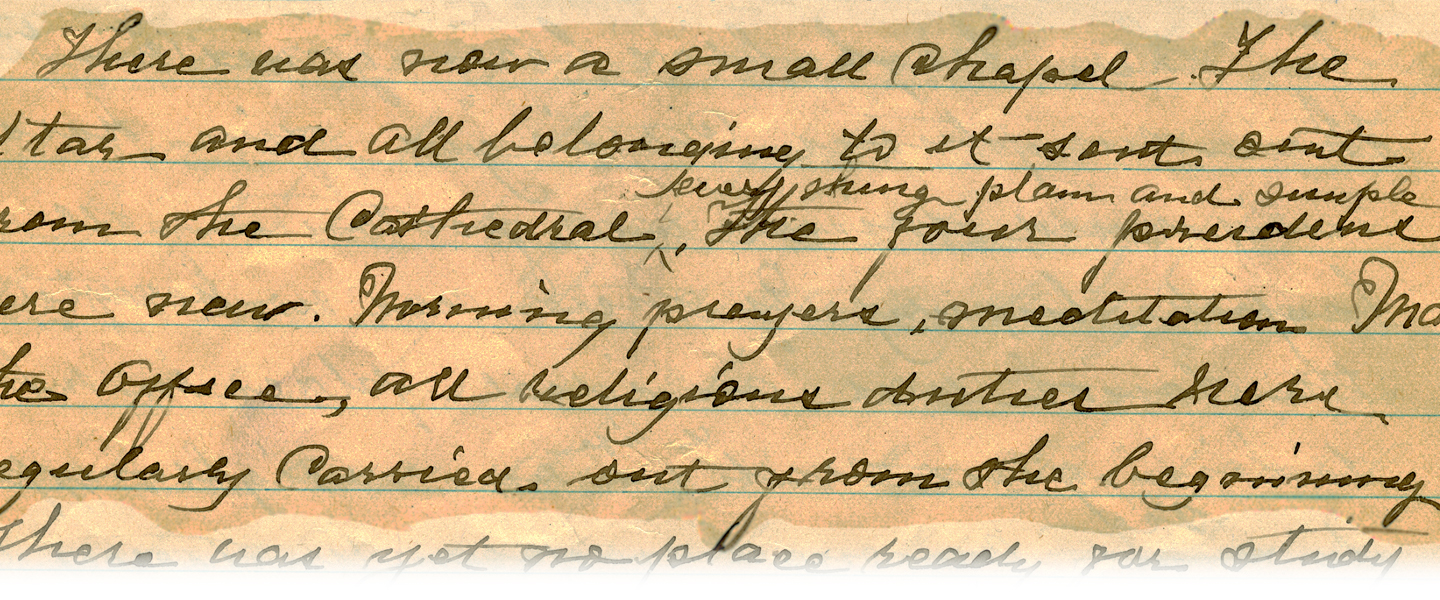
Since the religious life is intended above all else to lead those who embrace it to an imitation of Christ and to union with God through the profession of the vows, the fact must be honestly faced that even the most desirable changes made on behalf of contemporary needs will fail of their purpose unless there is a genuine renewal of spirit. Indeed, such an interior renewal must always be accorded the leading role. (Mother Marie William MacGregor, June 13, 1969)
Prioress General: 1964-1976
It is not uncommon to notice sisters pausing at a particular tombstone under a certain tree in the convent cemetery. Each sister is grateful to Sister Marie William MacGregor for the Congregation’s fidelity to the Church and to its Dominican charism. Mother Marie William served the community with wisdom and foresight as Prioress General from 1964-1976, years of rapid change following the Second Vatican Council. Under her direction, the sisters studied the documents from the Council and responded with an intelligent fidelity to the call for renewal.
Mother Marie William’s numerous letters to the sisters, whether at the Motherhouse or on mission, are marked by a deep devotion as well as a realistic candor. These letters comment on the difficulties of the times as well as the perennial challenges of teaching, living in community, and maintaining spiritual fervor. Take, for example, this passage from Tuesday of Holy Week, 1966: “Be faithful to the heritage of Community devotion. Above all else, nurture a constant and stable reliance on the Presence of Christ in the Blessed Sacrament. Pray, not necessarily long, but with deep love and earnestness.” Forty years later, sisters continue to turn to her correspondence for fresh inspiration.
Such faith and realism enabled Mother Marie William to communicate with conviction the mind of the Church to the members of the Congregation as well as to superiors from other communities, even at the risk of being unpopular. She recognized the importance of the tangible witness of religious life to people of God; the habit and the common life are “a visible sign of an invisible betrothal,” she wrote in her Christmas letter of 1967. Mother Marie William’s confidence in the enduring value of religious life led her to join leaders of other congregations with a similar vision; thus began the Consortium Perfectae Caritatis in 1970. Many religious and clergy appreciated her efforts to defend the true underpinnings of religious life and orthodoxy, as this excerpt from Cardinal Augustine Mayer attests: “I know it is not easy to resist the temptations in trying days like these but with God’s help you can continue to be the leader you have always shown yourself to be, encouraging and inspiring your own Sisters and others that look to you for support.”
Like the tree over her grave, the Congregation has spread its branches far and wide since Sister Marie William’s death. It has remained faithful to the Church’s vision and continues to fulfill her prophetic words: “Hopefully, many of those who come after us will enjoy the fruit of our suffering—a new springtime in the Church and a reflowering of authentic religious life. As recipients of a marvelous heritage, we have so much to offer those who will be daughters of the Church in the twenty-first century.”
Because God chose us and we were willing to make our pilgrimage along a narrow road, the travel is bound to be less comfortable and more demanding of us than of other Christian pilgrims. …Our perseverance in faith and vocation depends on the depth of our prayer life and our fidelity to our vows. So does our happiness. Whatever we do, Sisters, let us do it for one purpose—God’s greater honor and glory. Be faithful to your prayers—lead the common life, practice regular observance with freedom and love. (Mother Marie William MacGregor, May 26, 1971)


 Back
Back